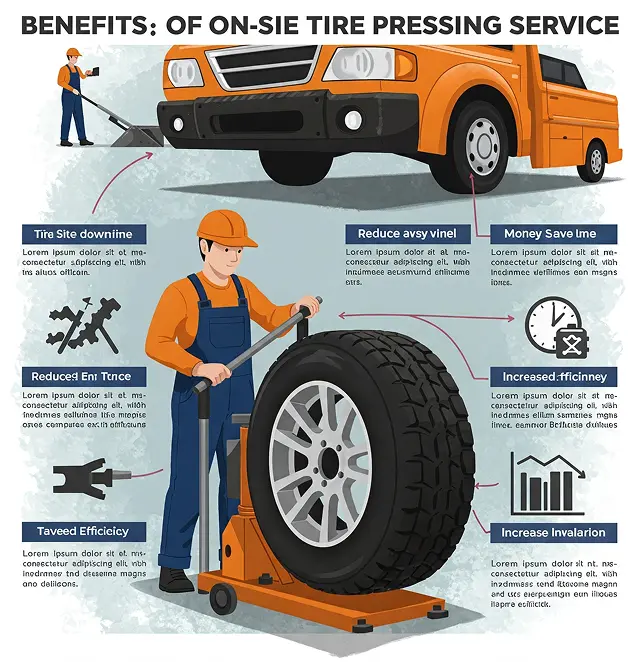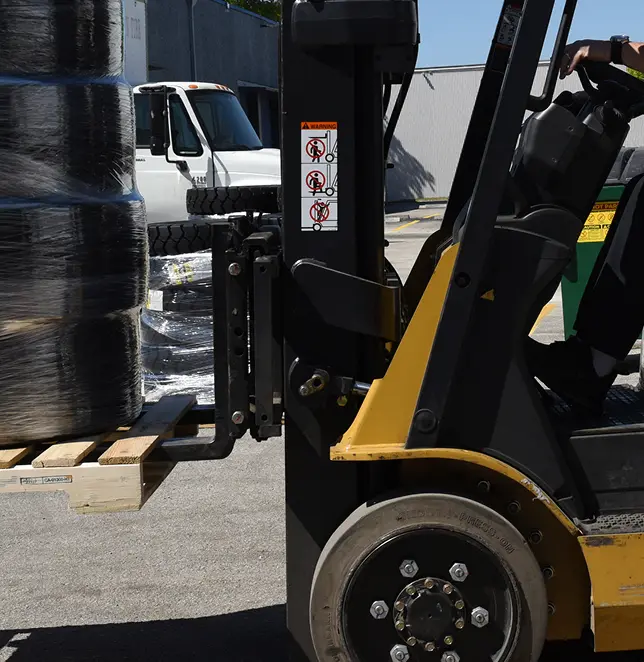Industrial tires play a critical role in the efficiency, safety, and longevity of heavy machinery. Proper maintenance can help prevent downtime, reduce costs, and improve overall equipment performance. This step-by-step guide outlines the essential preventive maintenance practices for industrial tires.
1. Regular Inspections
Frequent tire inspections can help identify potential issues before they become costly problems. During each inspection, check for:
- Cracks, cuts, or punctures
- Uneven tread wear
- Embedded debris such as nails or glass
- Sidewall damage
Performing routine inspections can prevent unexpected failures and extend the lifespan of your tires.
2. Maintain Proper Tire Pressure
Tire pressure affects traction, stability, and fuel efficiency. To maintain proper pressure:
- Check air-filled tires regularly with a calibrated pressure gauge
- Follow manufacturer recommendations for optimal PSI levels
- Adjust tire pressure based on load and operating conditions
Underinflated or overinflated tires can cause poor handling, increased wear, and reduced performance.
3. Ensure Proper Wheel Alignment
Incorrect wheel alignment can lead to uneven tire wear and increased fuel consumption. Regularly inspect and adjust alignment to:
- Prevent premature wear
- Improve handling and stability
- Reduce overall maintenance costs
If your machine pulls to one side or if there’s excessive vibration, check the alignment immediately.
4. Rotate Tires as Needed
Rotating industrial tires can help ensure even wear and prolong their life. Rotation should be done based on:
- Manufacturer guidelines
- Usage patterns and load distribution
- Inspection findings
Consistent tire rotation helps maintain balance and performance.
5. Keep Tires Clean and Free of Debris
Dirt, oil, and debris can cause premature wear and reduce traction. To keep tires in top condition:
- Regularly clean with water and mild detergent
- Remove embedded objects
- Store machinery in clean, dry areas when not in use
Proper cleaning can prevent chemical degradation and improve safety.
6. Replace Worn Tires Promptly
Using worn-out tires can lead to decreased efficiency and safety hazards. Signs that indicate a need for replacement include:
- Tread depth below recommended levels
- Visible cracks or sidewall damage
- Frequent loss of air pressure
Timely replacement ensures maximum performance and reduces risks.
7. Train Operators on Best Practices
Proper handling and operation of machinery can extend tire life. Train operators to:
- Avoid sudden stops and sharp turns
- Operate within load capacity limits
- Perform pre-operation tire checks
Educating employees on tire care can lead to significant long-term savings.
Conclusion
Implementing a solid preventive maintenance plan for industrial tires can improve safety, extend lifespan, and lower operating costs. Regular inspections, proper inflation, alignment checks, and timely replacements are essential steps in ensuring optimal performance.
For expert guidance and high-quality industrial tires, contact our team today!



